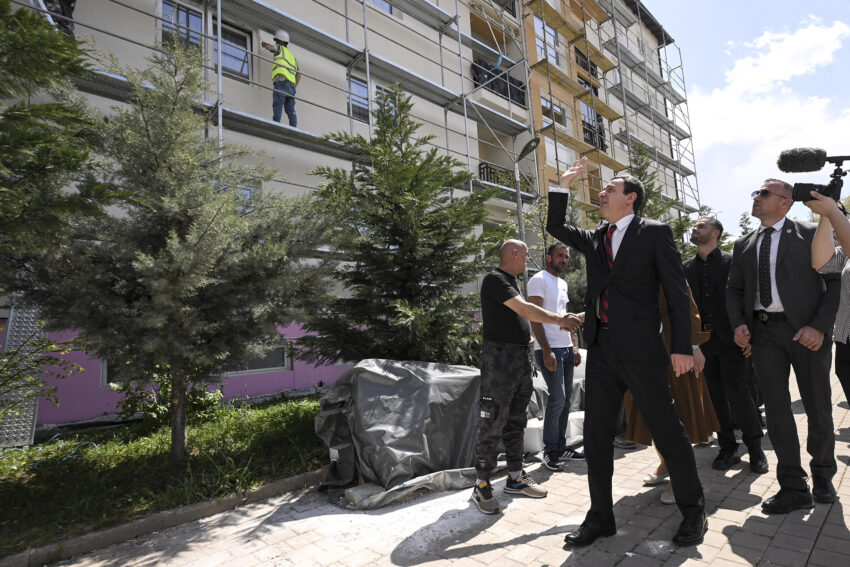Acting Prime Minister of Kosovo, Albin Kurti, and Acting Minister of Economy, Artane Rizvanolli, visited two multi-family social housing buildings in Hajvali, where major investments are being made to improve energy efficiency.
Accompanied by Driton Hetemi, Managing Director of the Kosovo Energy Efficiency Fund (KEEF), Kurti and Rizvanolli assessed the progress of the renovations, which aim to enhance living conditions for over 500 residents while reducing energy consumption and costs.
“These investments are not just about energy—they’re about dignity, sustainability, and social justice,” Kurti stated during the visit.
Energy Savings and Better Living Conditions
Built in 2017, the two buildings house 100 families, with one block accommodating veterans of the Kosovo Liberation Army (KLA) and the other families benefiting from social assistance. Over the years, residents have faced inadequate insulation, poor heating, and high utility bills.
Through the current upgrades, each apartment will receive thermal wall insulation, new energy-efficient windows, and modern heating and cooling systems. As part of the investment, every unit is also being equipped with a high-efficiency climate device.
An energy audit has already shown a 40% reduction in energy use in these buildings.
In other similar KEEF-led projects across public buildings, savings have reached as high as 90%.
A National Initiative Backed by the EU
The renovations in Hajvali are part of a broader program managed by KEEF, co-funded by the European Union (90%) and the Municipality of Pristina (10%).
Across Kosovo:
- 25 residential buildings are currently being renovated, benefiting over 750 families.
- More than 3,000 families have received assistance for home insulation.
- Over 40,000 households have received energy-efficient heating devices and solar panels.
- 125 public buildings, primarily schools and hospitals, have been refurbished.
Rizvanolli emphasized the long-term economic and environmental impact:
“Energy efficiency lowers costs, reduces environmental harm, and improves public health.”
This project reinforces the government’s commitment to sustainable development, energy independence, and inclusive infrastructure investment—especially for the most vulnerable populations.







